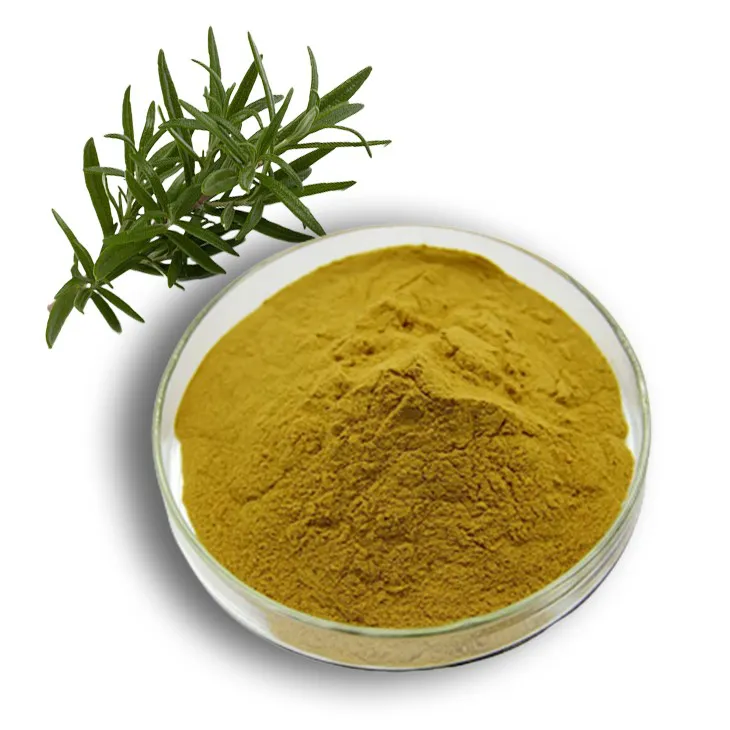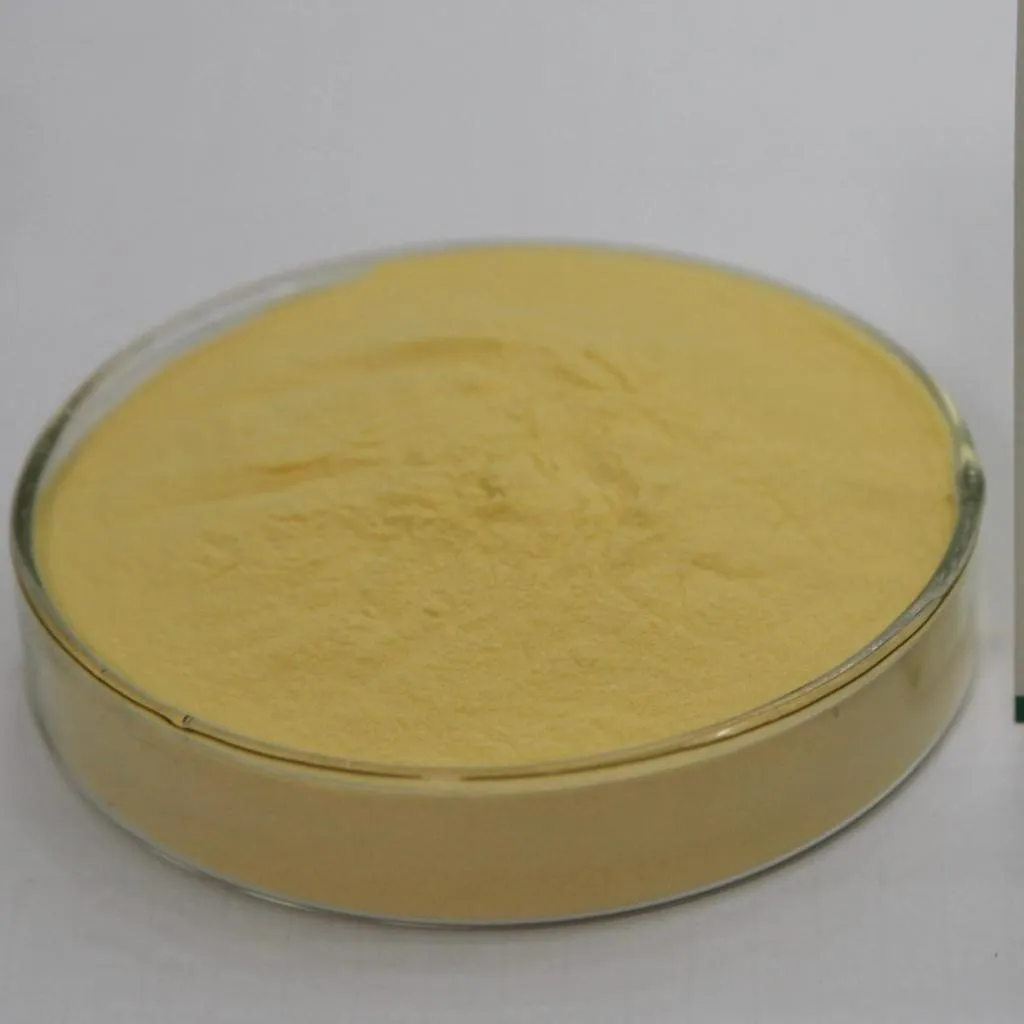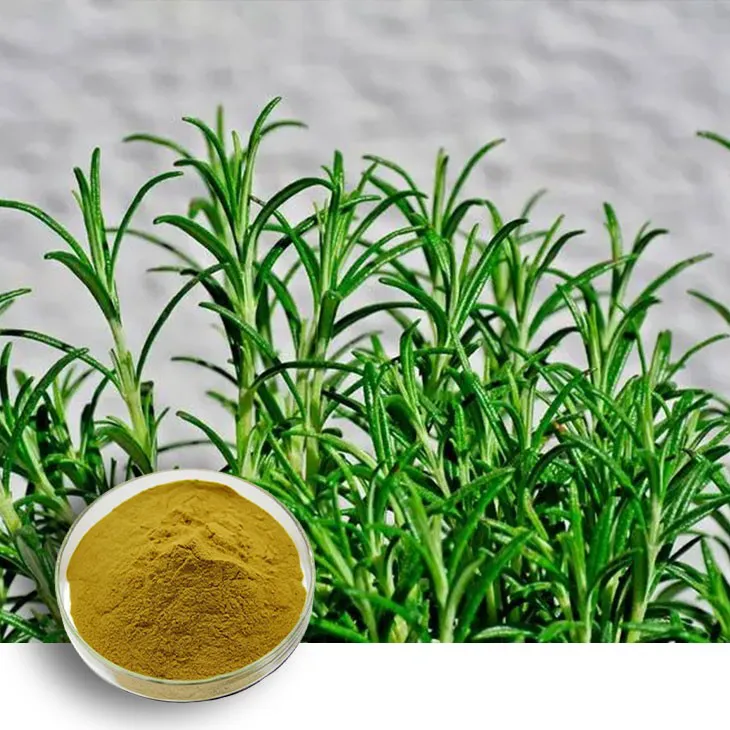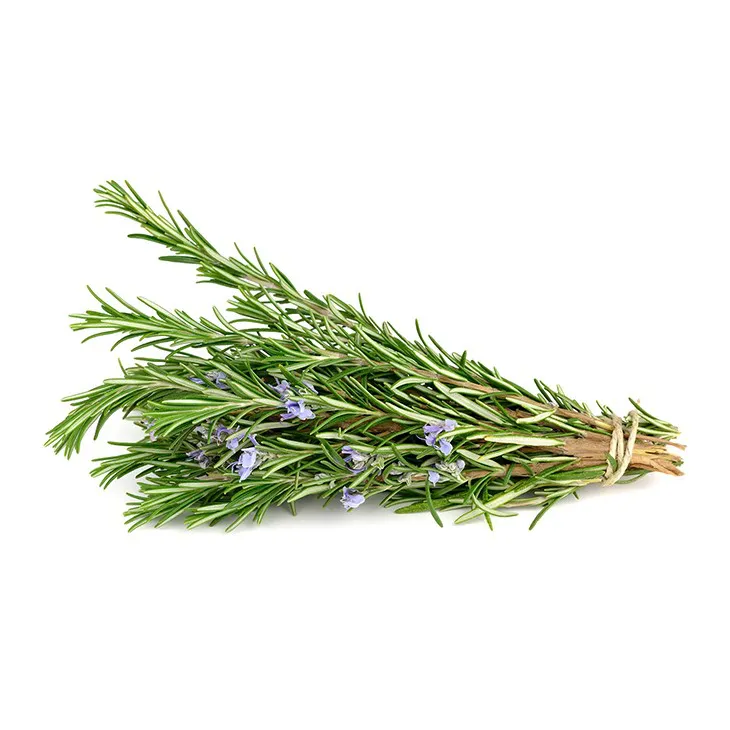- 0086-571-85302990
- sales@greenskybio.com
Can rosemary extract reduce cholesterol?
2024-11-12

1. Introduction
Cholesterol management is a crucial aspect of maintaining good health. High levels of cholesterol, particularly low - density lipoprotein (LDL) cholesterol, are associated with an increased risk of heart disease. In the search for effective and natural ways to manage cholesterol, Rosemary extract has emerged as a potential candidate. Rosemary, Rosmarinus officinalis, is a well - known herb that has been used for centuries in cooking and traditional medicine. It contains a variety of bioactive compounds that may have beneficial effects on health, including potential cholesterol - lowering properties.

2. Bioactive Compounds in Rosemary extract
Rosemary extract is rich in several bioactive compounds that could contribute to its potential cholesterol - lowering effects.
2.1. Rosmarinic Acid
One of the major components in rosemary extract is rosmarinic acid. It has antioxidant, anti - inflammatory, and antimicrobial properties. The antioxidant activity of rosmarinic acid may play a role in cholesterol management. Oxidized LDL cholesterol is more atherogenic (more likely to contribute to the development of plaque in the arteries) than non - oxidized LDL. By reducing oxidative stress, rosmarinic acid may help prevent the oxidation of LDL cholesterol, thereby reducing its potential to cause harm to the cardiovascular system.
2.2. Carnosic Acid
Carnosic acid is another important bioactive compound in rosemary. It has been shown to have strong antioxidant properties. In addition, some studies suggest that carnosic acid may influence lipid metabolism. It could potentially affect the enzymes involved in cholesterol synthesis or the uptake and excretion of cholesterol in the body. However, more research is needed to fully understand the mechanisms by which carnosic acid may impact cholesterol levels.

3. Scientific Studies on Rosemary Extract and Cholesterol
Several scientific studies have been conducted to investigate the relationship between rosemary extract and cholesterol levels.
3.1. Animal Studies
In animal models, some promising results have been obtained. For example, in a study on rats fed a high - cholesterol diet, the addition of rosemary extract was associated with a reduction in total cholesterol and LDL cholesterol levels. The rats in the treatment group also showed a decrease in the levels of triglycerides compared to the control group. These effects were attributed to the bioactive compounds in rosemary, which may have influenced lipid metabolism in the liver and other tissues. Another animal study found that rosemary extract could improve the lipid profile by increasing the levels of high - density lipoprotein (HDL) cholesterol, which is often referred to as "good" cholesterol because it helps remove excess cholesterol from the bloodstream.
3.2. Human Studies
Human studies on the effect of rosemary extract on cholesterol are more limited but still provide some valuable insights.
- Some small - scale clinical trials have investigated the use of rosemary extract as a supplement in individuals with mild to moderate hypercholesterolemia (high cholesterol levels). In these trials, participants who took rosemary extract supplements for a certain period showed a tendency towards a reduction in total cholesterol and LDL cholesterol levels. However, the changes were not always statistically significant, possibly due to the relatively small sample sizes and short - term nature of the studies.
- One study looked at the impact of rosemary extract in combination with a diet change. The results indicated that the combination may have a more pronounced effect on cholesterol levels compared to diet change alone. This suggests that rosemary extract could potentially be used as an adjunct to dietary interventions for cholesterol management.

4. Mechanisms of Action
The potential cholesterol - lowering mechanisms of rosemary extract are multi - faceted.
4.1. Modulation of Enzyme Activity
Rosemary extract may influence the activity of enzymes involved in cholesterol metabolism. For instance, it could affect the activity of 3 - hydroxy - 3 - methylglutaryl - coenzyme A (HMG - CoA) reductase, which is a key enzyme in cholesterol biosynthesis. By inhibiting this enzyme, rosemary extract may reduce the production of cholesterol in the body. Additionally, it may also impact the activity of other enzymes involved in the breakdown and excretion of cholesterol, such as lipoprotein lipase and bile acid - sequestering enzymes.
4.2. Anti - Inflammatory Effects
Chronic inflammation is associated with dyslipidemia (abnormal lipid levels) and the development of atherosclerosis. The anti - inflammatory properties of rosemary extract, mainly due to its bioactive compounds like rosmarinic acid and carnosic acid, may help improve the lipid profile. Inflammation can disrupt normal lipid metabolism and lead to increased cholesterol synthesis and decreased clearance. By reducing inflammation, rosemary extract may restore normal lipid metabolism and contribute to lower cholesterol levels.
4.3. Antioxidant Activity
As mentioned earlier, the antioxidant activity of rosemary extract plays an important role in cholesterol management. Oxidative stress can damage cells and tissues, including those involved in lipid metabolism. By neutralizing free radicals and reducing oxidative stress, rosemary extract can protect cells from damage and maintain normal cholesterol metabolism. This includes preventing the oxidation of LDL cholesterol, which is a crucial step in the development of cardiovascular diseases.

5. Comparison with Other Cholesterol - Lowering Agents
When considering rosemary extract as a cholesterol - lowering agent, it is important to compare it with other natural and synthetic options.
5.1. Natural Cholesterol - Lowering Agents
- Garlic: Garlic has long been studied for its potential cholesterol - lowering effects. Like rosemary extract, it contains bioactive compounds with antioxidant and anti - inflammatory properties. However, the mechanisms of action may differ. Garlic may act mainly by inhibiting cholesterol synthesis and increasing cholesterol excretion. In comparison, rosemary extract's effects seem to be more related to its antioxidant and anti - inflammatory activities, as well as its potential to modulate enzyme activity.
- Olive Oil: Olive oil, especially extra - virgin olive oil, is known for its heart - healthy benefits. It contains monounsaturated fatty acids that can help improve the lipid profile. While olive oil mainly affects cholesterol levels through its fatty acid composition, rosemary extract works through different pathways, such as its bioactive compounds' influence on enzyme activity and inflammation.
5.2. Synthetic Cholesterol - Lowering Agents
Statins are the most commonly prescribed synthetic cholesterol - lowering drugs. They work by specifically inhibiting HMG - CoA reductase, thereby reducing cholesterol biosynthesis. Compared to statins, rosemary extract has a more complex mode of action that includes antioxidant, anti - inflammatory, and enzyme - modulating effects. Moreover, statins may have some side effects, such as muscle pain and liver enzyme elevation in some patients. Rosemary extract, being a natural product, may potentially have fewer side effects, although more research is needed to confirm its safety and long - term efficacy.
6. Safety and Considerations
While rosemary extract shows potential as a cholesterol - lowering agent, there are also some safety and consideration aspects to keep in mind.
6.1. General Safety
Rosemary is generally recognized as safe when used in normal culinary amounts. However, when it comes to concentrated rosemary extract supplements, there may be some concerns. Although rare, some people may experience allergic reactions to rosemary. Additionally, high doses of rosemary extract may interact with certain medications, such as blood - thinning drugs, due to its potential to affect blood clotting. Therefore, it is important to consult a healthcare provider before starting to take rosemary extract supplements, especially if you are on other medications or have underlying health conditions.
6.2. Dosage and Standardization
There is currently no standardized dosage for rosemary extract in relation to cholesterol management. Different products on the market may contain varying amounts of the bioactive compounds. This lack of standardization makes it difficult to determine the optimal dosage for achieving cholesterol - lowering effects. More research is needed to establish appropriate dosage guidelines to ensure both safety and efficacy.
7. Conclusion
In conclusion, rosemary extract shows promise as a potential cholesterol - lowering agent. Its bioactive compounds, such as rosmarinic acid and carnosic acid, along with its antioxidant, anti - inflammatory, and enzyme - modulating properties, suggest that it may have a role in cholesterol management. While animal studies and some human trials have shown positive trends, more research is needed, especially in the form of large - scale, long - term human studies. Additionally, when considering rosemary extract for cholesterol management, safety aspects, including potential interactions with medications and the need for standardized dosage, must be carefully considered. Overall, rosemary extract represents an interesting area of research in the field of natural cholesterol - lowering agents, and further investigations may help determine its true potential in improving cardiovascular health.
FAQ:
What are the bioactive compounds in rosemary extract?
Rosemary extract contains several bioactive compounds such as carnosic acid, carnosol, rosmarinic acid, and ursolic acid. These compounds are thought to be responsible for many of its potential health benefits, including the possible effect on cholesterol levels.
How does rosemary extract potentially lower cholesterol?
Some studies suggest that the bioactive compounds in rosemary extract may interfere with cholesterol synthesis in the liver. For example, they might inhibit enzymes involved in cholesterol production. Additionally, it may also enhance the excretion of cholesterol from the body.
Are there any side effects of using rosemary extract for cholesterol reduction?
When used in normal amounts, rosemary extract is generally considered safe for most people. However, some individuals may experience allergic reactions. Also, high - dose long - term use may have some unforeseen effects, but more research is needed in this area.
How does rosemary extract compare to statins in cholesterol reduction?
Statins are very effective drugs for reducing cholesterol. Rosemary extract, on the other hand, is a natural alternative. While statins have been extensively studied and proven to significantly lower LDL - cholesterol, rosemary extract's effect may be more modest. However, rosemary extract may have additional health benefits due to its other bioactive compounds.
Can rosemary extract be used as a sole treatment for high cholesterol?
At present, it is not recommended to use rosemary extract as the sole treatment for high cholesterol. High cholesterol is a serious condition that often requires a comprehensive approach including dietary changes, exercise, and in some cases, medication. Rosemary extract may be used as a complementary approach to support overall cholesterol management.
Related literature
- The Effects of Rosemary Extract on Lipid Profiles: A Systematic Review"
- "Rosemary Bioactive Compounds and Their Impact on Cholesterol Homeostasis"
- "Comparative Study of Rosemary Extract and Synthetic Cholesterol - Lowering Agents"
- ▶ Hesperidin
- ▶ Citrus Bioflavonoids
- ▶ Plant Extract
- ▶ lycopene
- ▶ Diosmin
- ▶ Grape seed extract
- ▶ Sea buckthorn Juice Powder
- ▶ Fruit Juice Powder
- ▶ Hops Extract
- ▶ Artichoke Extract
- ▶ Mushroom extract
- ▶ Astaxanthin
- ▶ Green Tea Extract
- ▶ Curcumin
- ▶ Horse Chestnut Extract
- ▶ Other Product
- ▶ Boswellia Serrata Extract
- ▶ Resveratrol
- ▶ Marigold Extract
- ▶ Grape Leaf Extract
- ▶ New Product
- ▶ Aminolevulinic acid
- ▶ Cranberry Extract
- ▶ Red Yeast Rice
- ▶ Red Wine Extract
-
Withania Somnifera Extract
2024-11-12
-
Dandelion Leaf Extract
2024-11-12
-
Black Garlic Extract
2024-11-12
-
Coconut Water Powder
2024-11-12
-
Ivy Extract
2024-11-12
-
Nettle Root Extract
2024-11-12
-
Peppermint Extract Powder
2024-11-12
-
Wheat Germ Extract
2024-11-12
-
Echinacea Extract
2024-11-12
-
Artichoke Extract
2024-11-12





















